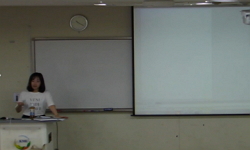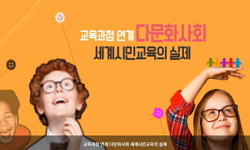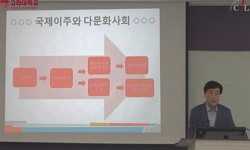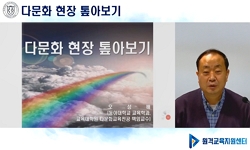In the history of civilization, the world history of the past 200 years has left a mark in the history of the global expansion of Western civilization and the struggles of non-Western countries. And in the 21st century, Korea's multicultural phenomeno...
http://chineseinput.net/에서 pinyin(병음)방식으로 중국어를 변환할 수 있습니다.
변환된 중국어를 복사하여 사용하시면 됩니다.
- 中文 을 입력하시려면 zhongwen을 입력하시고 space를누르시면됩니다.
- 北京 을 입력하시려면 beijing을 입력하시고 space를 누르시면 됩니다.

다문화사회의 상호문화성에 대한 전망 - 사회통합원리를 중심으로 - = Prospects for Interculturality in Multicultural Society - Focusing on Principle of Social Integration -
한글로보기부가정보
다국어 초록 (Multilingual Abstract)
In the history of civilization, the world history of the past 200 years has left a mark in the history of the global expansion of Western civilization and the struggles of non-Western countries. And in the 21st century, Korea's multicultural phenomenon, which was formed at the crossroads of radical globalization economically, politically, and culturally, is also operating surrounded by the axis of Western civilization universalism. Accordingly, in the midst of globalization, ‘practice multiculturalism’ and ‘social integration’ have become important tasks in Korean society due to the influx of labor migrants and marriage migrants. However, in reality, there are social and historical weaknesses in Korea's compressed modernization that prevent the community from maturing as a multicultural society. This is not only because the Western sociality that enables representative politics of civil society, the basis of Western universalism, and the rule of law, that is, rational liberal democracy, has not fully matured in Korean society, but also because of the inherent vulnerability of globalized multiculturalism.
The term ‘multicultural society’, which is used in various senses, has its origins in the immigration policy managed by the state, and has a large state-led political connotation as it has legal elements at the border management level. In Western history, it is an ideology that was created with the problem of post-colonialism following the immigration crisis. However, the mutual interference between the global economy and cultural activities at an ever-increasing pace is forming a super-complex social system. Among these direct and indirect influences, the movement of population, movement of labor, and flow of goods and capital have brought about rapid cultural transformation and conflict around the world under the advanced information technology system. Therefore, Western universalism requires the fusion of new civilizations from the perspective of the universal history of human civilization. This study examines the special characteristics of Korea's multicultural society within the mechanical arrangement of globalization and seeks the possibility of building the integration of a multicultural society based on the ideology of 'interculturality'. We will also highlight that the practice of cultural diversity implies a deep awareness of the diversity of life and the prospect for a universal civilization of humanity.
동일학술지(권/호) 다른 논문
-
여가스포츠 참여 중학생의 코치지원과 그릿 및 평생운동의도의 관계
- 한국홀리스틱융합교육학회
- 최석환
- 2023
- KCI등재
-
초·중등 예비교사의 교육적 공정마인드셋에 관한 탐색적 연구
- 한국홀리스틱융합교육학회
- 심우정
- 2023
- KCI등재
-
예비 유아교사의 요구도 분석 기반 전공역량체계 개편방안 탐색
- 한국홀리스틱융합교육학회
- 김현수
- 2023
- KCI등재
-
대학입학전형 사례 연구: 기독교 대학의 학생부종합전형을 중심으로
- 한국홀리스틱융합교육학회
- 김한나
- 2023
- KCI등재





 KCI
KCI 스콜라
스콜라






